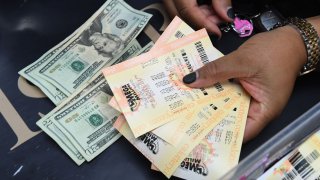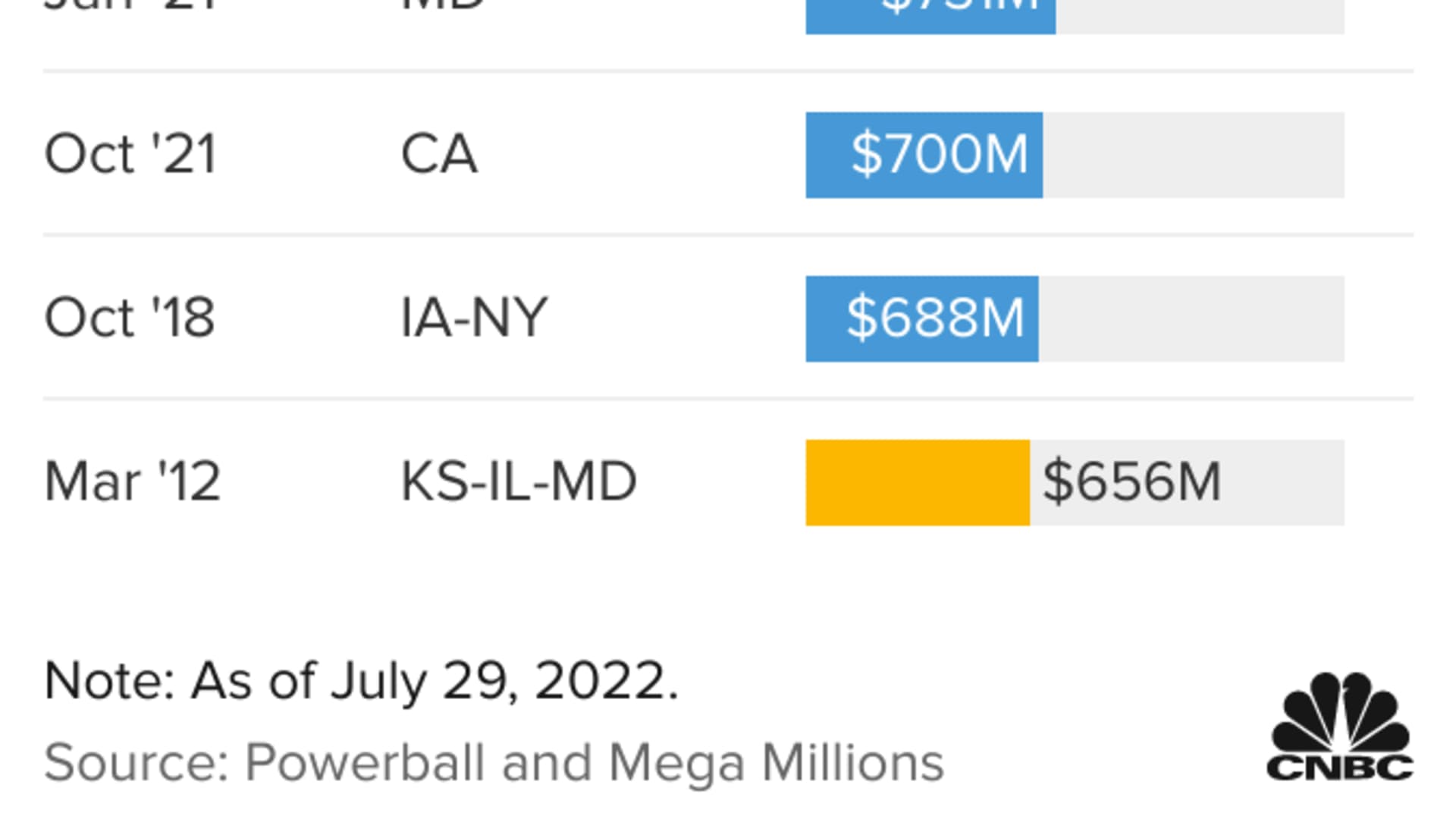
- If this jackpot is won, it will be the fourth lottery prize awarded that is worth more than $1 billion.
- The cash option — which most jackpot winners choose instead of an annuity — is $747.2 million.
- The IRS will take a big chunk of the windfall, and state taxes would likely be due as well.
It appears that the Mega Millions jackpot just won't quit.
Due to strong ticket sales, lottery officials have adjusted the top prize upward to $1.28 billion for Friday night's drawing. This is the fourth time a lottery jackpot has crossed the $1 billion mark.
While the chance of a single ticket hitting the motherlode is roughly 1 in 302.5 million, there's always a guaranteed winner: Uncle Sam.
Get top local stories in Philly delivered to you every morning. >Sign up for NBC Philadelphia's News Headlines newsletter.
More from Personal Finance:
Millennials’ average net worth doubled during pandemic
Social media 'FOMO' drives bad spending habits
This withdrawal strategy can help retirees stretch savings
Whether the windfall is taken as an annuity of 30 payments over 29 years or as an immediate, reduced cash lump sum, taxes end up taking a big bite out of any winnings.
For this $1.28 billion jackpot, the cash option — which most winners choose — is $747.2 million. A mandatory 24% federal tax withholding on that amount would reduce your winnings by $179.3 million.
Money Report
However, because the top federal marginal tax rate is 37% — which applies to income above $539,900 as a single taxpayer or $647,850 for married couples filing jointly — you could expect to owe more at tax time.
One way to reduce your tax bill is to think charitably, according to the American Institute of CPAs: You can contribute cash, up to 60% of your adjusted gross income, to a public charity or a donor-advised fund and get a tax deduction for the amount in the year you make the donation. You could also create a private foundation, donate income to it and then determine over time how to deploy the money.
If you had no reduction in income, another 13%, or $97.1 million, would be due to the IRS (about $276.4 million in all).
That would reduce the windfall to $470.8 million.

There also could be state taxes either withheld or due. Unless you live where there's no income tax or lottery wins aren't taxed, those levies could be more than 10%, depending on where you bought the ticket and where you live.
Nevertheless, even after a big tax bill, the windfall would be more than most people see in a lifetime. It's recommended that jackpot winners assemble a team of professionals to help navigate the claiming process, including an attorney, financial advisor and tax advisor.
Meanwhile, the Powerball jackpot is an estimated $170 million for Saturday night's drawing. Your chance of winning the top prize in that game is about 1 in 292 million.






